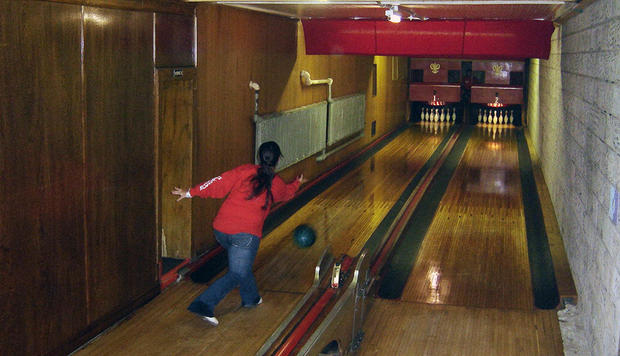Once popular sport suffers another indignity
It is another gutter ball for a once high-profile sport whose public visibility has waned in recent years under the impact of the 2008 financial crisis and America's changing demographics.
The U.S. Open, one of the premier professional bowling tournaments in the U.S., has been canceled for the second year in a row after the Bowling Proprietors Association of America (BPAA), which has organized it since the 1970s, failed to attract sponsors.
Officials at the BPAA, who couldn't immediately be reached for comment, had originally planned to revive the U.S. Open in 2015, one of four major tournaments on the Professional Bowlers Association schedule, after canceling this year's contest.
"When the economy took a downturn in 2009, that's when a lot of sponsorship from outside the industry ended," said John Losito, who runs the BPAA's tournament, in an interview. "We can't find anyone to help offset of running the tournament."
The group estimates that it costs about $500,000 to put on the U.S. Open. Meanwhile, potential advertisers that could infuse money into bowling typically want to reach adults aged 18 to 35, and fans of the sport tend to be older, according to Jeff Richgels of the site 11thframe.com.
"Bowling isn't what it was 10, 20 or 30 years ago... you can't make money magically appear," Losito said.
The cancelled tournament is the latest financial indignity to hit what its fans like to describe as America's most popular participatory sport. The Professional Women's Bowling Association went out of business in 2003. Since then, women have participated alongside men in professional tournaments, and in 2010 Kelly Kulick became the first woman capture a PBA title.
The PBA itself has faced hard times, and in 2000 was purchased by three former Microsoft (MSFT) executives. In an interview, Clark said the group hasn't decided on its next step. The PBA is a separate organization from the BPAA, which is a trade group.
Despite its image problems, pro bowling is still regularly shown on ESPN, where PBA commissioner Tom Clark says it attracts "solid audiences" of 600,000 to 900,000. He called the BPAA's decision to cancel the U.S. Open "disappointing."
Pro bowler Michael Fagan said he was discouraged to hear about the U.S. Open's cancellation.
"I believe that as soon as the event wrapped in July of 2013, there could have been a team preparing for the 2015 event and beyond," he said. "The biggest expense in this entire equation is television production. In my opinion, this event can easily run without television coverage, but that may not be something they want to sacrifice. Unfortunately, though, it may have to be something bowling has to think about moving forward if it wants to survive."
Canceling the tournament will also hurt Fagan and other top pro bowlers, many of whom receive sponsorships from makers of bowling equipment. More broadly, the move underscores the challenges bowling faces in getting people to take it seriously.
Jason Belmonte, who had been considered a favorite to win the U.S. Open, has taken to social media to try to convince the BPAA to bring the tournament back. On his Facebook page, he said he was sympathetic to the challenges the BPAA faces in finding sponsors, but was flabbergasted that the organization had thrown in the towel on holding the 2015 tournament with the current year not even half over.
Belmonte's views were echoed by pro bowlers Andres Gomez and Sean Rash on their Facebook pages.
Losito said it takes much longer to organize a tournament like the U.S. Open than Belmonte suggests.
Still, that is unlikely to quell the disappointment of bowling fans. Noted one commenter on Twitter, "It's not fair to take it away from all of us."
